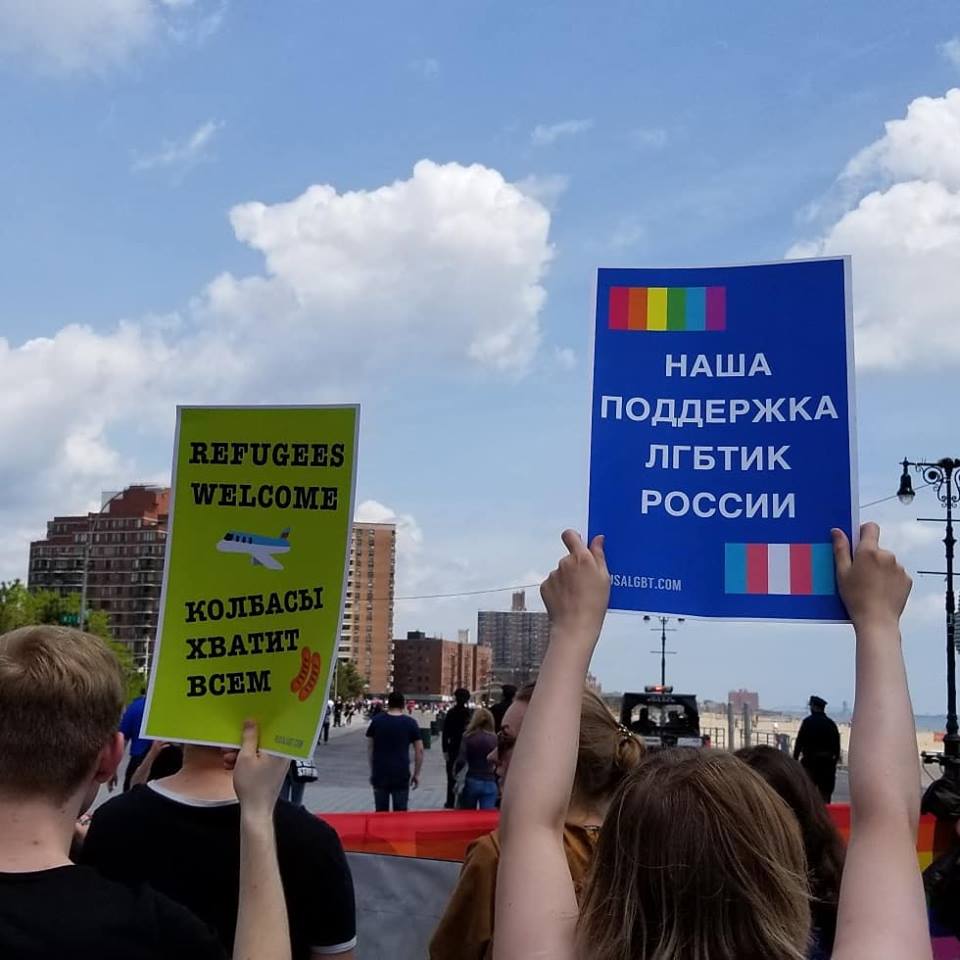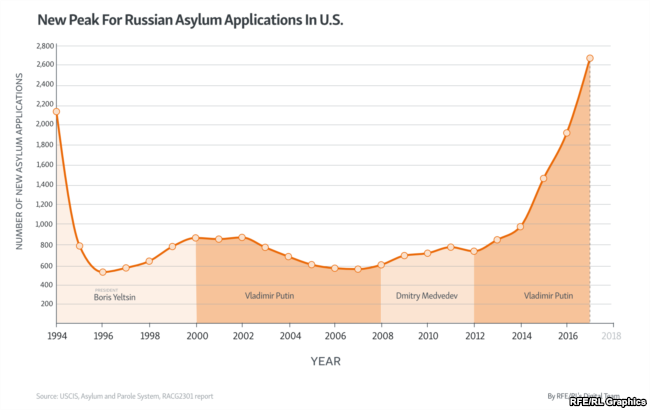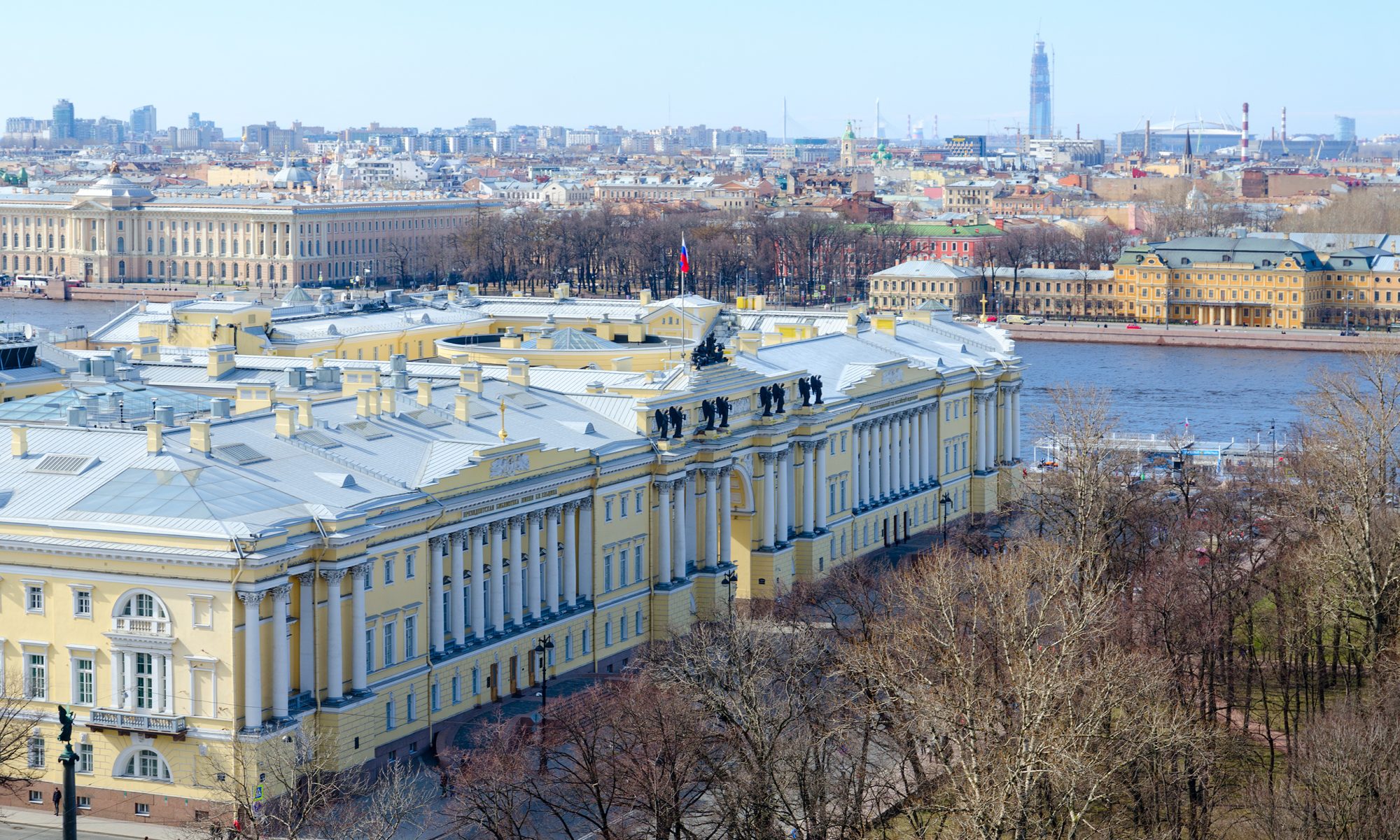
Moving abroad is an experience that can sometimes revel uncertain paths. For some people, such a move is structured by possibilities of eventual return. What if one leaves her home for good? What other structures come into play when people flee their countries looking for a safer place? Law is one of these structures. People may flee from hostile legal environment in their countries of origin and look for a better legal protection in new destinations. This is the case of LGBTQ asylum seekers from post-Soviet states heading towards a ‘dream future’ in New York City.
In our recent guest lecture (9.01.2019), Alexandra Novitskaya, a PhD candidate in Women’s, Gender and Sexuality Studies at Stony Brook University, SUNY and a visiting scholar at the Jordan Center for the Advanced Study of Russia, New York University, introduced her ongoing research project. Novitskaya’s work focuses on ethnographic research of the Russian-speaking LGBTQ migrant community in the US. Since 2015, she has conducted over 20 interviews with Russian-speaking LBGTQ asylum seekers from various post-Soviet countries, comparing the narratives of immigrant experiences derived from their oral testimonies.
Novitskaya placed her work within the context of the ‘Gay Propaganda Law’ in Russia, introduced by the Russian Duma in 2013. Various academic and activist studies registered growth of violence against LGBTQ populations in Russia after 2013 (Kondakov 2017; HRW 2014). Novitskaya subsequently argued that the ‘Gay Propaganda Law’ created an environment where anyone who did not fit the dominant narrative of Russian ‘traditional values’ began to be ostracized from society. Growing violence against the LGBTQ community in Russia has also purportedly lead to an increased exodus, and what Novitskaya’s research in New York proposes as an increase in asylum seekers in the US. These claims are also proposed by Radio Free Europe, Radio Liberty, though corresponding statistics cannot directly be validated by US Citizenship and Immigration Services (USCIS). That being said, there has been a continually increasing number in asylum applications in the US since 2014 (RFE/RL 2018).

One of the interesting findings that Novitskaya presented was the idea of a ‘gay American dream’, which many of her interviewees alluded to or commented on directly in their narratives. Novitskaya argued that this image of America as a gay friendly paradise may have been influenced by the rise of homo-nationalism conveyed by Hillary Clinton during her time as Secretary of State, as well as the Obama Presidency. This period of homo-nationalism in American domestic and foreign politics was characterized by increased funding for LGBTQ support abroad. Novitskaya argued that American homo-nationalism only incorporated the ‘gay American dream’ into already narrowly defined life narratives that American society associates with achieving success, utilizing the positive liberal image associated with LGBTQ rights for political points. Regardless, Novitskaya highlighted the increased public presence of the Russian speaking LGBTQ communities in the U.S., specifically RUSA LGBT – Russian-Speaking American LGBT Association in NYC, Boston, Chicago, and other large urban centers.
Novitskaya argued that many of her interviewees continued to have faith in America even while the Trump Administration remains unapologetically anti-immigration and anti-LGBTQ. Regardless of this populist turn in American politics, Novitskaya’s research participants continued to profess faith in the U.S. as a state based on the rule of law and checks and balances, considering Trump’s exclusive nationalism only temporary.
In the discussion that followed Novitskaya’s presentation, ideas were presented steaming from migrant studies literature, considering why many of these Russian asylum seekers had such a positive vision of America and the gay American dream. One participant commented that in the literature, there is an argument stating that regardless of how hard life in a new country may be, migrants are unlikely to return to their country of origin because that would be admitting failure in their quest to build a new life. Additionally, this may also lead to the perceptions of viewing the power of the American legal system through rose tinted glasses. Thus, the presentation left many open contemplations of which imagined communities Russian speaking LGBTQ asylum seekers participate in, and what America subsequently comes to signify for these communities.
In sum, the first 2019 lecture in the series New Perspective on Russia and Eurasia offered interesting thought and continued cross-Atlantic discussion on gender, migration, Law, and Russia in a global context. Follow us on Facebook or look at our events page for future events.
Bibliography
Anderson, Benedict (1983) Imagined Communities: Reflections on the Origins and Spread of Nationalism.
Human Rights Watch (2014, December). License to Harm: Violence and Harassment against LGBT People and Activists in Russia, 2014. Human Rights Watch. Available from: https://www.hrw.org/report/2014/12/15/license-harm/violence-and-harassment-against-lgbt-people-and-activists-russia#. Accessed 14.01.2019.
Schreck, C. (2018, May). Russian Asylum Applications in U.S. Hit 24-Year Record. Radio Free Europe, Radio Liberty. Available from: https://www.rferl.org/a/russian-asylum-applications-in-u-s-hit-24-year-record/29204843.html-. Accessed 11.01.2019.

